Doug Maw vs the Duke of Norfolk's 'predator control'Nine charges brought against anti-snare campaigner dismissed - but ordeal not overOn 24 January, a judge at Lewes Crown Court in West Sussex found anti-snare campaigner, animal rescuer, and hunt sab Doug Maw not guilty on all nine charges brought against him by Edward Fitzalan-Howard, the 18th Duke of Norfolk. The charges had included trap damage (ie criminal damage) and snare theft on the Duke's huge Arundel Estate, a mix of historic landscapes and shooting interests that lies within the South Downs National Park.Doug's ordeal began almost exactly a year ago on 8 February 2023 when Sussex Police arrested him for damaging a Larsen trap, a type of cage used widely on shooting estates to trap corvids. Although Doug says he could prove he wasn't even in the area at the time, between the arrest and July the police took from him mobile phones, a laptop, a Garmin smartwatch, leads for a power bank, and - most controversially - a bank card belonging to a former girlfriend which Doug says was subsequently used fraudulently. None of the items have been returned. Doug Maw tweet. Jan 24 2023He was also charged in relation to damaging or taking snares after several short videos went viral. They showed him releasing a hare and releasing a young deer - empathetic actions the vast majority of us will relate to but which the Duke of Norfolk has reportedly said should have been carried out by his gamekeepers and not a member of the public. 80% of the British public want snares banned but ridiculously the law says that anyonedamaging, removing, or taking away a legally-set snare could be charged with criminal damage or theft. There is of course nothing new about activists running up against powerful landowners and the police, so what makes this story so noteworthy? It's especially noteworthy because it lays bare the ridiculous lengths that a vastly wealthy landowner like the Duke of Norfolk will go to when it comes to keeping hidden the enormous numbers of traps and snares he is using to 'protect' pheasants, partridges, and (in the uplands) grouse from native predators, and the way legislation in the UK favours the interests of landowners above those of us who love and want to protect wildlife. It should have us all asking: in what world can it be right to take someone to court for releasing animals from traps? Google mapsThe Arundel Estate The Arundel estate includes Arundel Castle and swallows up thousands of acres of the South Downs National Park. Close by lies Angmering Estate, which at 6,750 acres forms the eastern half of the original Norfolk Estate and is now owned by the Trustees of the late 16th Duke of Norfolk for the benefit of his daughters and other wider members of his family. The Duke has received hundreds of thousands of pounds in public subsidies for his Arundel estate. Defra figures for 2020 show it paid him over £228,000 for his land in West Sussex. And as Who Owns England? previously published, the figure for 2015 was even higher at nearly £260,000 – though this was under the preceding ‘single area payment scheme’ which was evaluated on slightly different criteria. Arundel is described as one of the "foremost shoots in the country" by the team at GunsOnPegs. The breathless writers at Purdey's (a gun manufacturer) go further saying that "Arundel is classic shooting...with a focus on quality sport in some of the best-kept landscapes in the country". Shooting high-flying birds at the estate, they go on to proclaim ecstatically, "truly is a Holy Grail-level experience." Starry-eyed reporting of men with guns who ruthlessly kill birds at Arundel was taken to a shameful level of pant-wetting fandom when Vintage Magazine gushed excitedly in December 2012 that "The Percy boys (Ralph and James) came down from Northumberland recently to join a team of Fitzallan-Howards, and the resulting bag was an astonishing 291 greys, 305 redlegs, 42 pheasant and 3 pigeon! An observer said that the Percy boys were a joy to behold, as they shot with near clinical efficiency, and modest too." 641 dead birds but congrats 'boys' on not bragging about it... Angmering Estate is similarly famed for 'high birds' flushed out over lines of waiting guns. Shooters take their days out killing very seriously, and shooting will take place in the most awful conditions regardless of the fact that any surviving birds burn up far more energy trying to escape in cold, wet conditions than they normally would. Another report, written this time from the point of view of how hardy people with guns must be to keep shooting in the pouring rain, comes courtesy of a 2010 eulogy in Shooting Gazette which includes the dark observation that "In increasingly difficult conditions, when drizzle turned to heavy rain and then light hail, the guns stood at the base of the bank with their backs to a strip of copse and did their best to deal with some very quick early partridges, followed by flushes of pheasant." Snared fox. ShutterstockTraps, snares, and cagesIt takes a great deal of work to 'produce' so many birds for the gun - or at least (as far as the estate's gamekeepers are concerned) it takes placing an almost unimaginable number of snares, traps, and cages to ruthlessly destroy native predators that would otherwise call the South Downs National Park home. Banned across most of Europe, as Protect the Wild has pointed out many times almost the only people still using snares are shooting estates where they are deployed to kill huge numbers of foxes. Many shooting estates are of course owned by extremely influential men like the Duke of Norfolk, which is the reason it has proved so difficult to ban snares in England - see 'Banning Snares: a parliamentary debate in name only'. This is where Doug Maw comes back into the story. Doug has been logging traps, snares, and cages on the Arundel Estate for many years. He describes their use on the estate as “prolific” and “in the many hundreds”. Last summer in an area near Amberley where populations of Grey Partridge have been restored to enable the Duke to shoot a 'surplus' of this Red-listed species, Doug found a staggering 40-50 snares in just two hours. He and Simon Wild (the founder of the National Anti-Snaring Campaign (NASC) and now banned from the Arundel Estate) have found snares illegally set along runs by a badger sett, and one video published by NASC showed an Arundel snare trapping a domestic dog. In the same area around Amberley, Doug told Protect the Wild that he'd found a "few dozen Larsen traps" and fox cage traps like the one below. Squirrel traps attached to trees are widespread, and remarkably he says he has also "recorded a couple of hundred tully traps in one day". Tully traps are used to kill Stoats and weasels. Fox trap, Arundel Estate. Doug MawLarsen trap, Arundel Estate. Doug Maw.All of this destruction, remember, is 'legal' (a legislative distinction that doesn't take into account the suffering involved) and is taking place inside a national park - a place most of us might naively believe to be a 'haven for wildlife'. Remember too that the use of hundreds of traps, snares, and cages is justified by the Estate to 'protect' young pheasants and partridges just long enough for them to grow old enough to be sold to shooters to kill. Somewhat ironically, the Duke is lauded in some circles for his work on Grey Partridge conservation. It is certainly true that from a few partridge brought in from Sandringham, numbers on the estate are now nationally important. However, that has gone hand in hand with many more birds being shot and many more mammals being killed. There is an argument put forward that if it weren't for an extremely wealthy man's desire to have a partridge shoot the land here may have been farmed more intensively or dedicated solely to the mass slaughter of pheasants: for many of us that simply shows the paucity of options that the wealthy present when choosing what to do with 'their land' and 'their wildlife'. What next?On the 24th, the judge expedited the decision to clear Doug Maw on all charges because the prosecution team repeatedly failed to offer any evidence. While relieved, Doug told us that was not the outcome he had wanted - at least not on this occasion. He had been due to face trial in front of a jury later in the year. He is convinced (and is certain the Duke of Norfolk is similarly convinced) that presented with the evidence not only would the jury have cleared him but they would have severely criticised Sussex Police for their handling of the case and pilloried the large-scale trapping operations taking place on the estate. Doug has no criticism of the judge at all but feels the case was deliberately allowed to fail by the prosecution. It's hard to disagree. Doug Maw tweet 24 Jan 2023While this stage of the prosecution is over, the ordeal is not finished yet. In two weeks time Doug is due back in court to face a restraining order issued by the estate. Among the restrictions he expects the estate to try to impose will be a promise not to 'trespass' on any part of the estate, not contact any estate staff member except to report an animal welfare or environmental issue, and not 'encourage' others to trespass or interfere with any property on the Norfolk Estate. That might sound reasonable to someone who has not the slightest concern for wildlife (shooting lobbyists would be delighted to nail an 'extremist anti' no doubt), but what it effectively means is that if he accepts Doug could be arrested for going off a footpath to help an animal, could be arrested for 'damaging' a snare while releasing that animal, and even if he is still able to tell people about the snares and traps on the estate he would not be allowed to suggest they do anything about them. For a life-long campaigner and anti-snare activist that is an unacceptable legal straitjacket, especially given the enormous destruction taking place on the estate. It may be preferable to a civil suit which Doug could lose and be bankrupted by, but the Duke of Norfolk on the other hand would have removed a major irritant and it might perhaps encourage other 'pillars of the establishment' to crush other 'little people' up and down the country. It is not an easy decision to make, but there seems little doubt that Doug Maw will of course fight on and reject the terms of the order. And he pledges to be back - as he has done repeatedly - leading protests outside Arundel Castle as soon as the estate reopens in the spring. The personal risk, in his opinion, is negligible compared with the harm being done to wildlife every single day on a huge estate set in one of the UK's so-called 'national parks'. We have said it before and will no doubt say it again, protecting wildlife is difficult, takes huge personal sacrifice, and can be dangerous. Few of us would risk taking on a Duke but when your convictions are this strong you really don't have a choice...
|
Sunday, 28 January 2024
THE HEADLINE SAYS ALMOST ENOUGH BUT IT IS MORE COMPLEX - COMMONERS AGAINST THE TITLED
Subscribe to:
Post Comments (Atom)
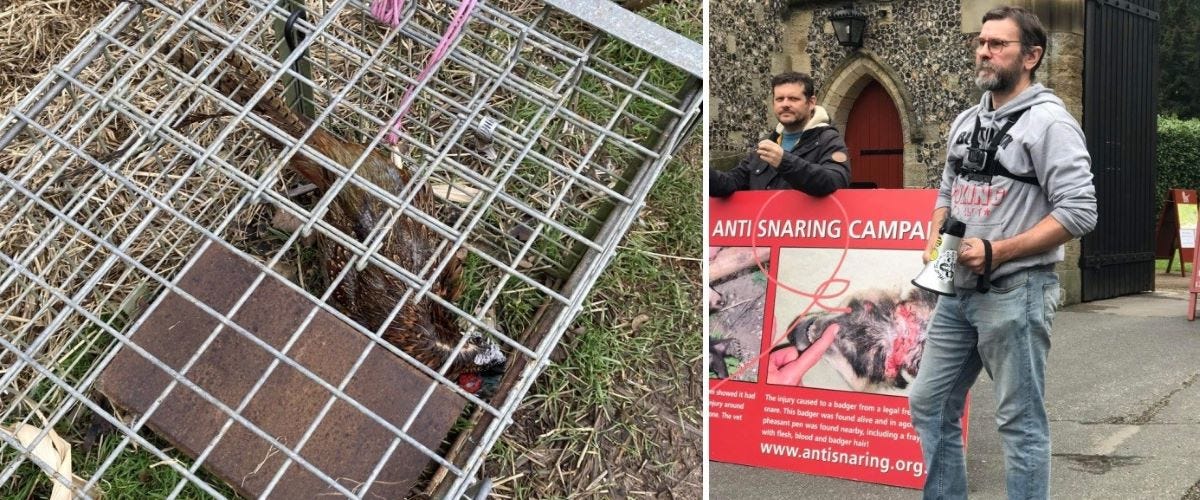

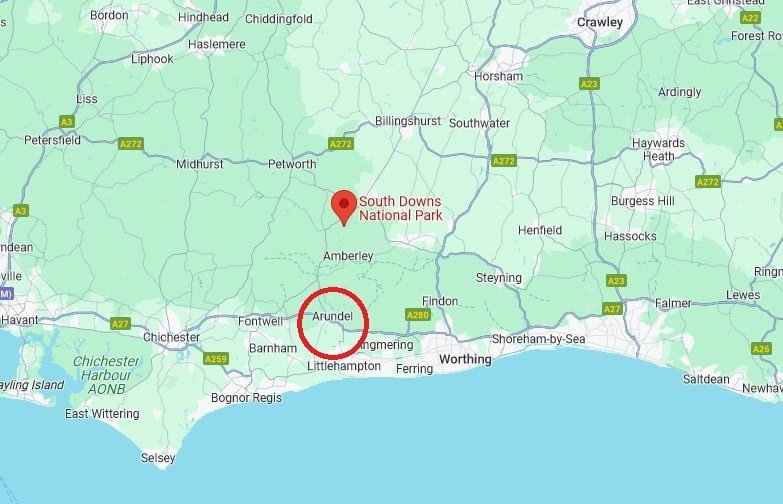
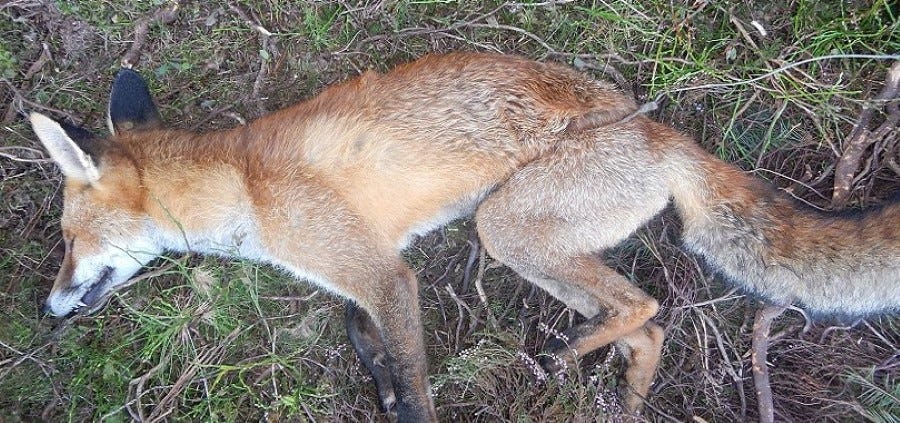
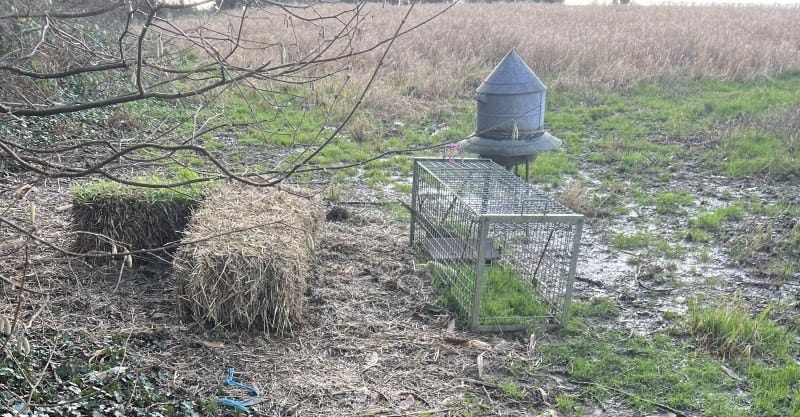
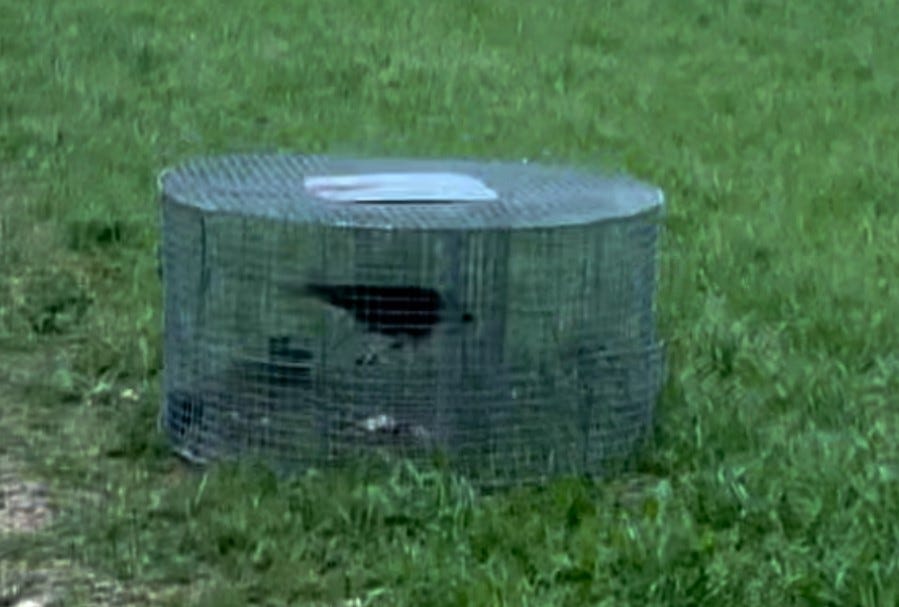
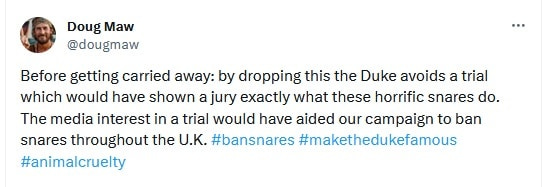


No comments:
Post a Comment